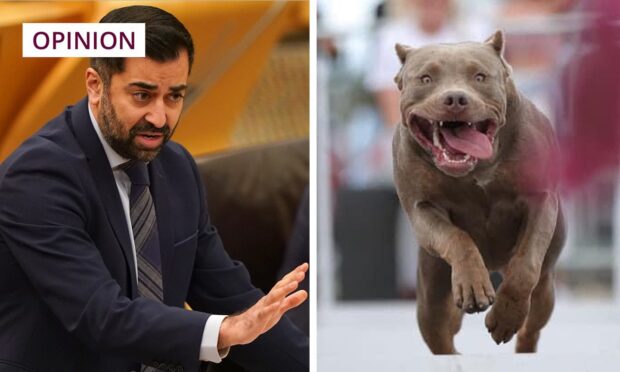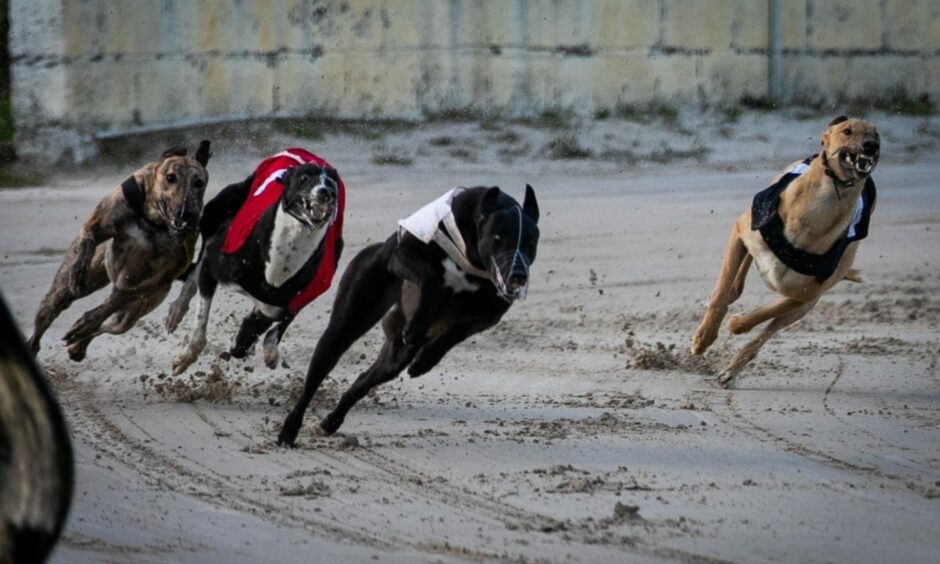Few legislative issues, it is fair to say, can quite capture the popular imagination like whether to ban killer dogs.
Since serious concerns first emerged about XL Bullies last year, social media has been awash with evidence of out-of-control dogs behaving aggressively.
Newspapers have been inundated with horror stories of attacks and bites.
Animal rights activists and campaigners for tighter controls have engaged in an increasingly acrimonious debate over the breed’s future.
Amid this cacophony, the Prime Minister, Rishi Sunak, saw an opportunity not only to act but also show leadership on an issue that became – quite rapidly and quite understandably – a major cause of public concern.
Within days of a particularly horrific XL Bully rampage, he had announced the breed would, in effect, be banned.
But not so in Scotland.

Here, Humza Yousaf and the SNP government have been shockingly slow to act – umming and ahing about a ban while Scotland’s homes and streets have quickly and entirely predictably become a dumping ground for unwanted – but still fundamentally dangerous – dogs.
Only now, weeks after the ban has begun in the rest of the UK, do we learn a similar measure will in fact be imposed in Scotland later this year, as Humza Yousaf confirmed during First Minister’s Questions on Thursday.
Talk about closing the kennel door after the dog has bolted.
How can we explain the SNP government’s seemingly inexplicable failure to act on an issue that, as Sunak realised, is one of deep public concern?
It cannot be because Nationalist ministers are unaware of the dangers of XL Bullies.
The genetic instincts of these dogs are not bound by the limitations of geography, and they have proved themselves just as dangerous in Scotland as elsewhere.
Tragically, people – including Dundonian Adam Watts – have been killed in attacks by the breed.
‘SNP will be responsible for next dog attack’
Equally, it has been argued – in these pages, and elsewhere – that the aggression found in XL Bullies can, in fact, be attributed to “irresponsible” ownership.
There may be an element of truth in this, but it seems more likely that some people want to own XL Bullies because they are innately and inherently aggressive, or at least can easily be trained to be so.
Certainly, it seems far-fetched to suggest an XL Bully would become incapable of aggression because it was owned by Mother Theresa, just as it seems far-fetched to suggest a Chihuahua would be inclined to go on a murderous rampage just because it was owned by Mao Tse-Tung.
Nor can the SNP government’s inertia be explained away by a lack of legislative confidence or experience in this area.
Much can be made of its law-making record over the last 17 years, but one thing has been abundantly clear – the Nationalists are not afraid to ban things they do not like.
Singing at football matches, GM crops and even the use of wild animals in travelling circuses have all been proscribed by SNP ministers who, if anything, have far too great an inclination towards prohibition.
In fact – even as Yousaf was insisting a ban on XL Bullies was something “we don’t think is required” (his government would reverse that position a couple of days later), his Scottish Green fellow-traveller, Mark Ruskell, announced plans to ban greyhound racing in Scotland and close the country’s last dog track in Thornton, Fife.
Whatever you think of XL Bullies – or, indeed, dog tracks – it is difficult to follow the reasoning of an administration that thinks greyhound racing is unacceptable, but killer dogs are fine.
Yousaf’s justification for his failure to act – before he decided it was actually necessary to act – is that Scotland already has “quite a tight regime” around the control of dangerous dogs. But this position has been assiduously refuted by the former MSP Jenny Marra, who led a review into the existing legislation in 2019.
The primary issue here, of course, is one of public safety. But there is also a political point to be made, which is no less valid because it is secondary.
Indeed, rarely has a single issue so incapsulated the utter inertia and lack of direction at the heart of the SNP government.
This is an issue of deep public concern where people want action. It is something where the SNP government could easily have acted, but instead prevaricated, only deciding eventually to act amid considerable public pressure. In the meantime, the situation has been made inexorably worse.
Certainly, the Nationalists’ failure to act means that when there is another dangerous dog attack – as there inevitably and tragically will be – it is the SNP that will be held accountable. And – given they are quite happy to stop wild animals appearing in our circuses, but not, it seems, on our streets – it is entirely right that they will be.



Conversation